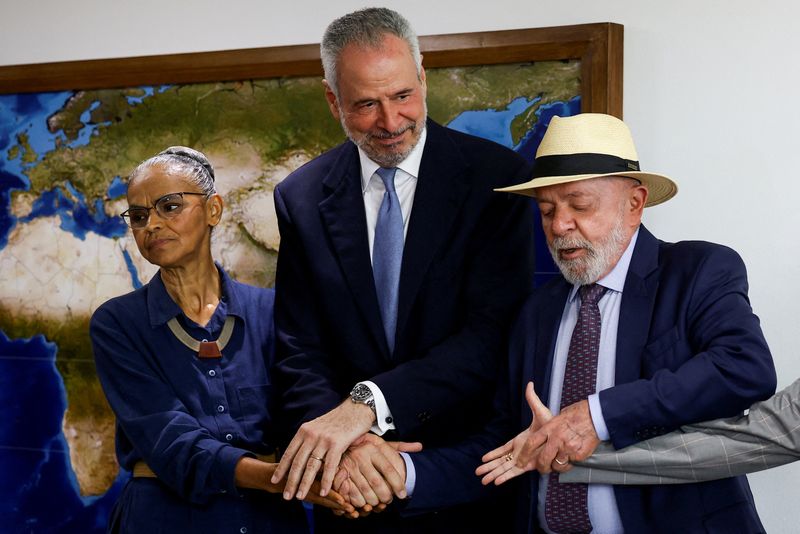By Lisandra Paraguassu
As world leaders grapple with the U.S. withdrawal from the Paris Agreement, Brazil, the host of this year’s COP30 global climate summit, sees an opportunity to amplify the voices of developing nations in what will be a fierce dispute over who will pay for the global transition to cleaner energy sources.
During last year’s summit, in Azerbaijan, a bitter fight that pitted wealthy nations against lower-income countries ended with a pledge from wealthy countries to provide $300 billion a year to support developing nations by 2035. While the target is triple what the current target of $100 billion, it is only a fraction of the $1.3 trillion per year developing countries say are needed. The fight is likely to continue this year.
“It was already hard to get to $300 billion with the United States in the negotiation,” said Andre Correa do Lago, the newly appointed president of COP30, in an interview with international media outlets on Wednesday.
He noted that, under President Joe Biden, the U.S. implemented new policies to fight climate change and worked to strengthen the role of multilateral development banks, such as the World Bank, to increase financing of projects to curb global warming. Without all that action, Correa do Lago added, increasing climate finance “will certainly be harder now.”
Despite those challenges, Correa do Lago added, developing countries are “very united” in blocking calls from wealthy nations to expand the base of countries that financially support efforts to mitigate climate change and adapt to its impacts around the world.
In recent years, European leaders have been calling on emerging economies that are big polluters and increasingly wealthy, such as China and Gulf states, to make mandatory contributions to help poorer countries cope with climate change. China, the second most populous nation on Earth, is by far the world’s largest emitter of greenhouse gases.
“What developed countries want isn’t to increase the financial resources, they want to lower their contribution in donating financial resources and that is naturally and profoundly wrong,” Correa do Lago said.
The U.S. withdrawal also stirred questions about which countries will help steer the outcome of the global climate summit this year. As one of world's biggest economies and emitters, the U.S. has been central to negotiating the outcomes of COP meetings, along with the European Union and China.
Commenting on the expected U.S. exit from the Paris Agreement at last year's COP29 climate summit, China's climate envoy Liu Zhenmin said "Everyone expects China and the EU to work together to fill this gap," according to state-run newspaper The Beijing News. "Which is a beautiful wish, but it is actually difficult to do."
Correa do Lago pointed to the BRICS group - which gathers Brazil, China and other emerging economies – as a forum that may help Brazil build a consensus among developing nations to not back down on their calls for more contributions from wealthy nations, which are historically the biggest emitters of greenhouse gases. Brazil also holds the BRICS presidency this year.
“We are going to seek also in BRICS to obtain some consensus and provoke certain discussions,” Correa do Lago said.
During the G20 summit in Brazil last year, Brazil and other developing countries managed to block an attempt by wealthy nations to include a call for emerging economies to help in climate finance. Correa do Lago was one of the lead negotiators then.

Correa do Lago made a strong defense of what emerging economies are already doing to combat climate change with their own budgets, highlighting Brazil’s efforts to curb deforestation, a major source of greenhouse gas emissions, and the trillions in Chinese investments in clean energy technology.
“China is providing infinitely more resources to the developing world by massively reducing the price of solar panels and the cost of electric vehicles,” he said, adding that these investments are a lot more meaningful to poorer countries than if China "were just contributing symbolic amounts."